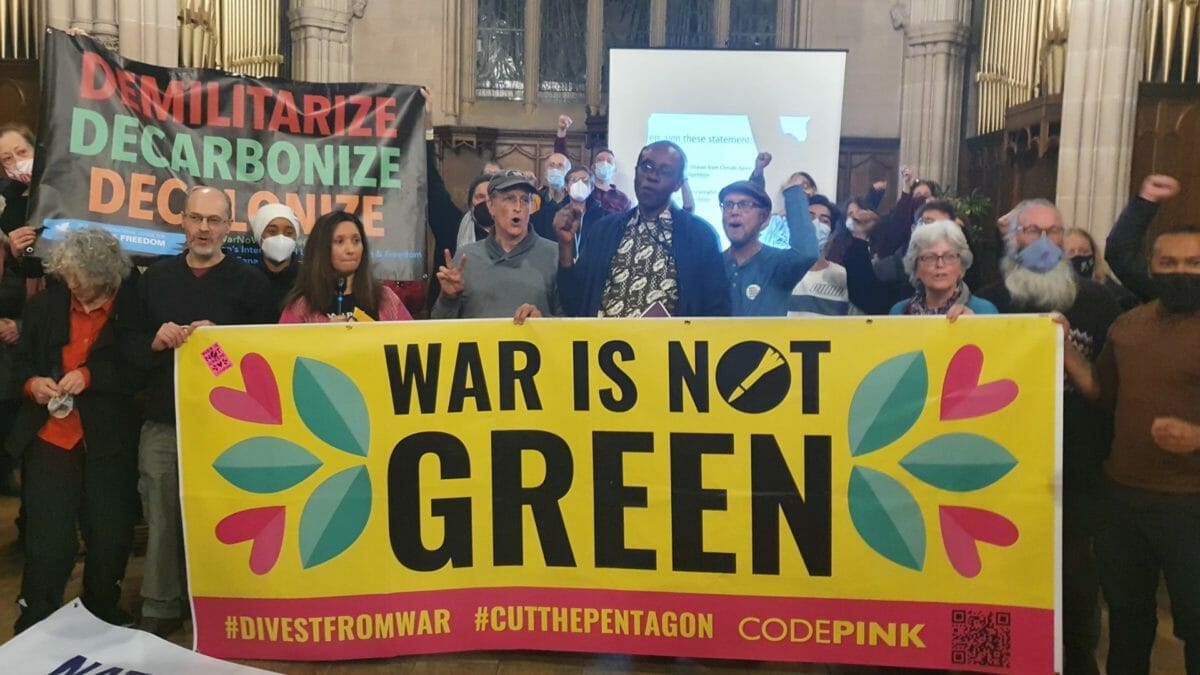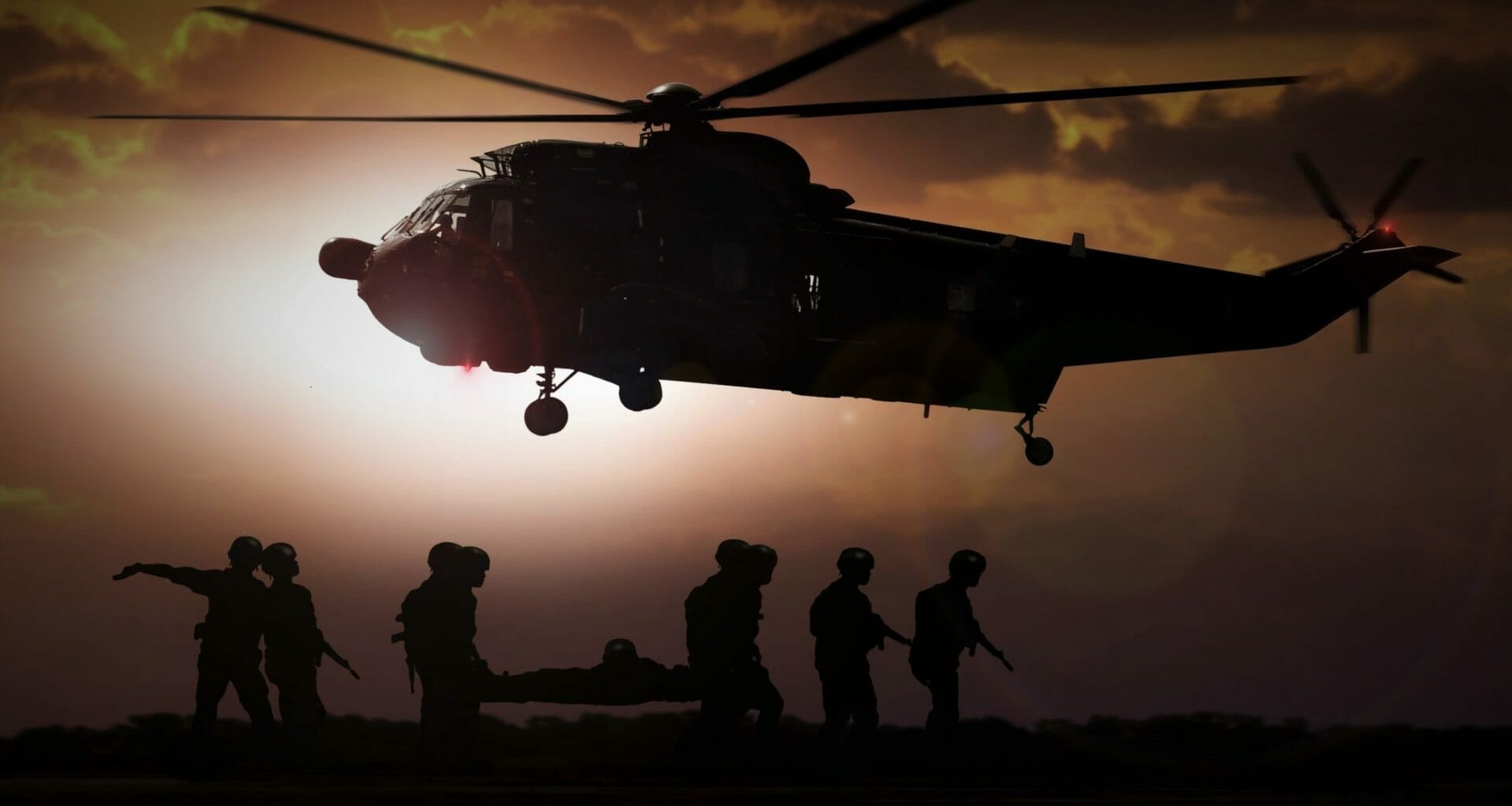Thirty-five countries with the world’s largest militaries — including the UK — have been condemned as “poor” for refusing to disclose all the climate pollution they cause.
A new analysis launched at the COP26 climate summit by an international research group, the Conflict and Environment Observatory (CEOBS), found that countries either “very significantly” under-reported carbon emissions, or failed to report them at all.
Researchers examined 40 countries with some of the biggest military spending in 2020, amounting in total to £937 billion ($1,270bn). They included the US, Russia, UK, France, Japan and Italy, Australia and Canada.
The world’s armed forces are major emitters of climate-disrupting greenhouse gases. But reporting of military emissions was not included in the 2015 Paris Agreement, leaving it to the discretion of individual nations.
The key contributions to military carbon footprints include the equipment used in exercises, patrols and fighting wars, along with management of military bases and supplies such as food and fuel.
CEOBS was set up in 2018 to reduce the harm to people and the environment from armed conflicts and military activities. It has been funded by the Norwegian and Finnish governments.
“We urgently need improvements in what is reported, and in what is required to be reported if we are to have the knowledge needed to identify cuts,” CEOBS research director, Doug Weir, told The Ferret.
He pointed out that only five industrialised countries reported their emissions in line with the United Nations’ minimum requirements. They were Germany, Hungary, Norway, Slovakia and Cyprus.
“But even here it only tells a small part of the story because their methodology is unclear and they do not take emissions from their supply chains into account,” Weir added.

The UK Ministry of Defence (MoD) has reported greenhouse gas emissions of 0.9 million tonnes a year. But according to research by Scientists for Global Responsibility (SGR) this figure rises to 11 million tonnes when UK and overseas supply chains, other core MOD activities and the UK arms industry are included.
“This the equivalent of six million cars not being counted or being included in a different category and does not include the emissions from direct impacts of war such as oil depot fires and deforestation, healthcare of casualties, or post conflict construct,” said SGR’s executive director, Dr Stuart Parkinson.
He accused military establishments of getting away with not reporting their carbon emissions openly and accurately for “too long”. This must change, he argued, with militaries subjected to the same reporting rules as civilian sectors.
Parkinson pointed out that the MoD’s failure to declare all its emissions could undermine the UK’s aim of achieving net zero emissions by 2050.
“It does count at least some military emissions and others are counted in other categories. But we don’t know for sure whether it’s all counted,” he said.
They’re really gearing up right now for climate change to be the next reason for war.
Nick Buxton, Transnational Institute
Campaigners wanted the world’s militaries to reduce their emissions by scaling down their activities. But the Amsterdam-based think tank, the Transnational Institute, suggested that armed forces are responding to the climate crisis by scaling up their up capabilities — and hence their carbon footprint.
“As a result of climate change, the Pentagon and other military analysts are saying we’re going to have mass movements of people and conflicts in new areas and new territories. So they’re really gearing up right now for climate change to be the next reason for war,” warned the institute’s researcher, Nick Buxton.
“One big focus you’ll see in almost every national security strategy is that migrants are a threat. And yet migrants are increasingly forced from their home because of climate disasters. They are the victims of climate change.”
According to a report in October 2021 co-authored by Buxton, the world’s wealthiest and biggest emitters spent £24.5bn ($33.1bn) arming their borders between 2013 and 2018. This was more than twice the £10.6bn ($14.4bn) they spent on climate finance to help poorer countries mitigate and adapt to climate change.
They included the UK, the US, Germany, Japan, Canada, France and Australia. Buxton accused these countries of building a “climate wall” to keep out the consequences of the climate crisis whilst at the same time driving up emissions.
The Ministry of Defence stressed that it was fully committed to the UK’s target of net zero by 2050. “We continue to embed this across our armed forces,” said a spokesperson.
“We publish our greenhouse gas emissions in accordance with government direction on the defence estate, travel and global operational fuels consumption in our annual report and accounts.”
Cover image thanks to iStock/razihusin. This story was updated at 18.10 on 9 November 2021 to add comments from the Ministry of Defence. On 10 November 2021 a comment from Nick Buxton was amended and a reference to the US was omitted from the third paragraph.














